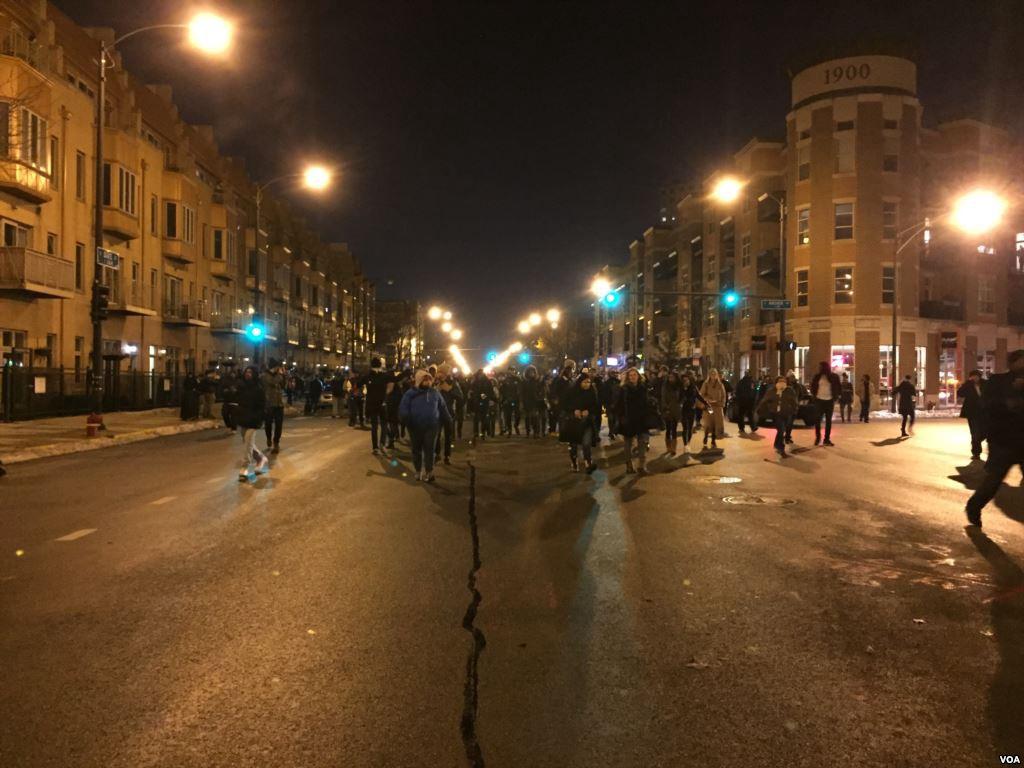Allegations of police corruption in Chicago present a big opportunity for Kim Foxx
Who is she accountable to?

Four years after former Chicago Sgt. Ronald Watts pleaded guilty to stealing from an undercover officer, 15 people whose cases were linked to the crooked cop are banding together to fight their convictions. The group recently filed a court petition alleging that Watts played dirty when working on their cases, and that their convictions should be overturned. During a news conference last week, the petitioners’ attorney also said Watts’ known history of corruption calls into question the integrity of all the cases he previously worked on.
Petitioner Lionel White Jr. claims he was convicted after Watts planted drugs on body. He says he was framed a few months after his father filed a complaint against Watts for similar abuses of power. The 14 other petitioners made similar allegations about Watts, who patrolled a public housing complex for years and was reportedly notorious for corruption, according to the Chicago Tribune. In addition to stealing money from a federal informant posing as a drug courier in 2012 — a crime for which he spent 18 months in prison — Watts was known for taking money from drug dealers in exchange for “protecting them.”
The petitioners’ attorney, Joshua Tepfer, argues that this systemic corruption cannot be ignored. “There’s no way to separate the wheat from the chaff,” he said during last week’s news conference. “This is a credibility contest. Who do we believe, the police officers, or these citizens?” Tepfer also noted that people who have spoken out against Watts in the past have been retaliated against.
The 15 petitioners are not the first to challenge their cases due to Watts’ misconduct. At least five other people arrested by Watts and his team of officers have had their convictions tossed out, including White’s father. Two of the convictions were overturned this year, at the urging of Cook County State’s Attorney Kim Foxx, whose first term as the county’s top prosecutor began in December. But with so many cases at stake, the latest petition gives Foxx an opportunity to make a big statement about police corruption in a city where shady police dealings are the norm. It also presents an opportunity for the newcomer to show who she is accountable to: the police or the communities they have historically abused.
From the Guardian’s investigation of police black site Homan Square to local reporting on Laquan McDonald and other victims of police violence, there is no shortage of stories about systemic police abuse and misconduct in Chicago. Nevertheless, egregious police behavior has largely been swept under the rug by the city’s top brass, including Foxx’s predecessor, Anita Alvarez. Not only did Alvarez wait more than a year to charge McDonald’s shooter — a decision made when the city was court ordered to release video of the shooting — but she failed to charge officers responsible for the deaths of 68 people. She undercharged the officer who fatally shot Rekia Boyd, and prosecuted a woman who filed a complaint against officers for sexual harassment. But her actions were also par for the course. As Black Lives Matter activists and journalists have repeatedly pointed out — most recently in response to the Jason Stockley’s acquittal in St. Louis — cops are rarely charged for extrajudicial killings. When officers are prosecuted, they are rarely convicted.
It is the exception, not the rule, when prosecutors choose to hold officers accountable.
As a state’s attorney candidate, Foxx, who previously served as an assistant attorney under Alvarez, promised change. She was highly critical of Alvarez’ handling of the McDonald case, and acknowledged the conflict of interest that exists when prosecutors have to police the police. “To fix that system, and to begin to build public trust in it, we must acknowledge the fact that the Cook County state’s attorney’s office relies heavily on police officers as witnesses and critical sources of information for most of the cases it prosecutes,” she wrote during her candidacy.
As State’s Attorney, Foxx was also committed to reforming the office’s Conviction Integrity Unit early on. In December, she said that the unit had been “compromised” and hired a law professor to design a better system — a move she described as a “top priority.” In May, she tapped a long-time trial lawyer to lead the unit, applauding his “sound judgment, exemplary reputation, and thoughtful and thorough approach.” Since the start of Foxx’s leadership, the office has overturned at least five convictions, including the two cases linked to Watts. Having run on a progressive platform that emphasized officer accountability, overturning 15 convictions could send an even clearer message that corruption — when identified — will not be tolerated.
But it is also a pivotal opportunity for Foxx to make a statement regarding who she is bound to serve: law enforcement or the people who got her elected.
Foxx belongs to a growing group of district and state attorneys elected because they are critical of outdated tough-on-crime policies that have, historically, led to the over-criminalization of Black and Latinx communities. Those communities saw Foxx as a potential game-changer. They launched a massive grassroots campaign, steered by Black Lives Matter activists and Assata’s Daughters, that aimed not only to elect her, but also to oust Alvarez, who had targeted them and protected cops at their expense.
The more Foxx does to right past wrongs within the law enforcement community — even if that could sully her relationship with the police she collaborates with —indicates that she feels obligated to fulfill her pledge to the people who put her in office. It says that prosecuting officers and acknowledging their abuses of power should be the rule, not the exception.
